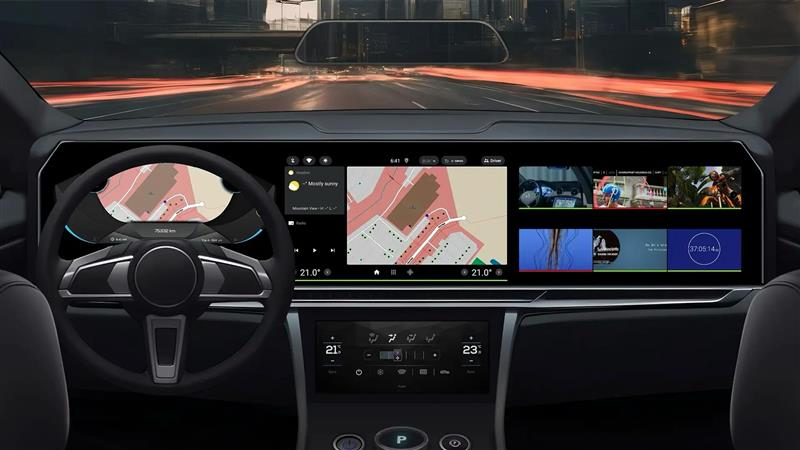
BlackBerry might best be remembered by many for its smartphones, but its innovation has continued in new and exciting ways as the company has pivoted to new industries, bringing their ethos of safety, security, and reliability to diverse applications. Today their QNX software powers over 255 vehicles on the road, driving the future of automotive technology.
QNX, a division of BlackBerry, prides itself on its local heritage and expansive global reach.
“Our software is the foundation for hundreds of millions of mission critical devices in automotive, industrial robotics, and medical,” says Grant Courville, senior vice-president of products and strategy. “We build software that underpins critical systems that require safety, security, reliability and performance.”
“Our software is the foundation for hundreds of millions of mission critical devices in automotive, industrial robotics, and medical.”
In early 2024, QNX announced the release of its new QNX Software Development Platform 8.0. Combined with the QNX operating system (RTOS) QNX SDP 8.0 provides a safe and secure development platform for today’s embedded computing industry.
“We have also been investing in cloud enablement. Our customers want to leverage the scale, velocity and availability of the cloud for their embedded systems. We’re working to enable our customers to use our software in the cloud just as they would in the embedded system,” says Courville, noting that QNX also enables customers to apply artificial intelligence (AI) in their systems.

The QNX Hypervisor allows for the consolidation of diverse embedded systems with different reliability and security requirements on a single system-on-a-chip. Clients can, for example, run Linux or Android in a virtual machine on top of the QNX hypervisor, as it provides the ability to run mixed OS environments on the same system.
QNX Cybersecurity enhances the company’s emphasis on security.
“We provide a number of tools as well as software capabilities within our operating system, within the hypervisor, to help our customers architect and build their systems so they can defend against attacks,” Courville says. “Our philosophy is you can’t have a safe system unless it’s a secure system.”
The QNX operating system also enhances data privacy. “Our job is to make sure that our customers make use of all the capabilities we have to ensure that all of their sensitive information is stored securely, and that the integrity of that information is maintained,” explains Courville.
“You can’t have a safe system unless it’s a secure system.”
QNX is used for many practical applications, including in automobiles for advanced driver assist systems (ADAS) that enhance safety (such as for lane departure warning, lane-keep assist, automatic emergency braking, and in-car camera systems). The rail industry uses QNX in its communications and braking systems to increase safety, security, reliability and performance. It is also used by the aerospace and defence industries in “everything from autonomous subs to ground vehicles to communication systems,” says Courville.
“Robotics is also a huge area for us. We’re winning all kinds of business, especially as companies move to more cooperative robotics,” says Courville.
QNX-embedded software solutions help medical device manufacturers innovate and rapidly deliver safe, secure medical applications to market, says Courville. “Our solutions scale to meet the requirements of medical applications that range from small-footprint, real-time applications such as ventilators and infusion pumps, to full-featured applications such as robotic surgery, imaging and monitoring systems.”

Hundreds of millions of medical devices operate on QNX software, demonstrating its widespread adoption and proven performance in critical healthcare applications, he adds.
QNX traces its roots in Ottawa back to 1980. It was acquired most recently by Research in Motion (now BlackBerry Limited) in 2010. BlackBerry has more than 2,500 employees worldwide. “We don’t provide a specific headcount by office, but Ottawa is a key hub for innovation and the development of QNX technology,” says Courville.
“Ottawa currently has the most open roles by office location globally.”
The company is actively hiring for various roles in Ottawa and globally, including engineering, product management, sales, marketing, and other areas. “In fact, Ottawa currently has the most open roles by office location globally, a testament to QNX’s continued success within the marketplace,” says Courville.
QNX also actively collaborates with many post-secondary institutions to offer internship and co-op programs, providing students with opportunities to gain hands-on experience.
Article by Jeff Buckstein, OBJ.
